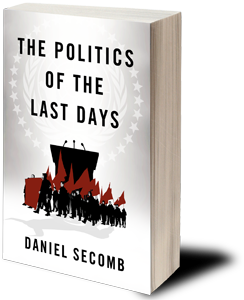
It was a bright, cold day in Oxford and everywhere I looked, rainbow flags flapped and fluttered in the sharp wind.
They flew from the ancient colleges along the High Street. They flew from the Town Hall.
And what they said to me was ‘Your side has lost. There is nothing you can do about it.’
As I write this, I know that an apprentice Thought Police officer will certainly copy and store my words, to use them against me at some point in the future.
The mere act of suggesting that there is anything oppressive about these banners will ensure that I am convicted of ‘homophobia’. Those who condemn me will not be even slightly interested in what I actually think.
It is startling to recall walking down the same street more than 50 years ago, when nobody had ever thought of rainbow flags and this was still a free country.
At that time, just as I am now, I was strongly in favour of maximum tolerance towards homosexuals, and thought it ludicrous and wicked that only a few years before, they were being arrested and prosecuted for actions that were wholly private.
But in the years that followed, a strange thing happened.
Tolerance, which still seems to me to be the best way of coping with our many differences, was no longer enough. In fact, it became positively bad. Nothing short of total acceptance of the new thinking would do.
A huge change in sexual morality of all kinds was cleverly presented as mainly being the liberation of homosexuals from persecution.
In truth, it had many other aspects, to do with abortion, stable marriage, fatherless families and other changes which mostly affected defenceless children.
But conservatives who had doubts about any of it could be – and were – instantly dismissed as crude bigots who were motivated largely by a hatred of homosexuals.
No doubt, some of them were, just as some opponents of mass immigration are racial bigots.
But most of them, including me, were not bigoted at all. The point was, it no longer mattered. While you were explaining, you were losing the argument. So better to leave it.
Privately, I still believe that my position is thoughtful and civilised. Publicly, I know it is now futile, and worse than futile, to defend it, so I have reluctantly chosen silence.
But even to explain how my freedom is limited by the flying of these flags is to risk being sniffed out by zealous heresy detectors, and that is enough.
Already, to my certain knowledge, cold and unsympathetic minds pore over my writings, often going back for decades, trying to find passages that they can claim have offended them. What actually offends them is the discovery that anyone disagrees with them.
Individuals like me must therefore be humiliated, silenced and, in the end, destroyed and forgotten.
People will travel long distances, and make great efforts, to be offended or insulted in this way.
They rifle through ancient archives to uncover remarks made in a less censorious age, so that they can repeat them and demand the punishment of their authors.
The claim to have been affronted in some way is now the unanswerable charge, by which people such as me will eventually be thrust out of society into a silenced and despised outer darkness, where we will be heard and seen no more.
We will, in my view, be lucky if we do not end up being led away in handcuffs, while former colleagues jeer at our humiliation.
You think this is exaggerated or alarmist? I am not so sure. Read on.
This crushing process happens in all revolutionary states. From the French Revolution onwards, half the purpose of the new regime has been to destroy – often physically – the idea that things might ever have been done differently.
I used to wonder, during my long years travelling in the Communist world, what the point was of the ever-present red banners proclaiming the mythical glories of socialism amid actual shortages and secret police repression. Who could be fooled by these crimson lies?
And then it was explained to me: the whole point of these banners and posters and portraits of Lenin and Marx was to demoralise and isolate the dissenter.
They proclaimed: ‘We have won. We are in charge. Our lies are now the truth. You can do nothing about it. Nobody cares what you think.’
And so it is with the rainbow flags.
Britain is full of people who have never wholly agreed with the great sexual revolution which has overtaken us in the past 30 years, and is now embraced by the Conservative Party and the churches.
But even in private they hesitate to say so – in fact, they may even say roughly the opposite of what they secretly think.
For they know a terrible thing. If they are denounced, they could lose their livelihoods, as dangerous a threat in its own way as the threat of imprisonment once was.
Fifty years ago it never really crossed my mind that this could happen here.
I have at my elbow twin Penguin paperbacks of George Orwell’s Nineteen Eighty-Four and Aldous Huxley’s Brave New World, both bought and first read by me in 1967 when I was 15 or 16.
They are cracked and frayed from much rereading. Both, enjoyably, are priced at three shillings and sixpence, in the old unmodernised, monarchist currency which those of us who once used it all miss, as a symbol of a lost way of life.
Heavens – how free, and how carefree we were then. I won’t even try to translate this price into today’s tin coinage. It would be like trying to render Shakespeare into the babble of a Radio 1 DJ. It was a completely different thing from what we have now, like so much else from that time.
In the messy, unmodernised world of shillings and pence, you see, we felt quite safe from the horrors which Huxley and Orwell predicted. We had no idea what was coming.
Interestingly, both these horrible utopias – one a Communist police state, the other a drugged, family-free, religion-free pleasure dome – use the metric and decimal systems.
The vast laboratories in which Huxley’s mass-produced babies are brought to life are measured in metres. Beer, in Orwell’s dismal totalitarian London, is sold only in litres, and paid for in dollars and cents.
I am sure both men did this quite deliberately. They knew that world-reformers have a passion for chilly neatness, and hate the irregular and the old.
So there is that. And there is the great question of which of these prophecies has come true, and which is the more frightening.
The unwelcome answer is that both are coming true together, and that they are equally frightening. The rainbow flags are supposedly there to mark LGBTQ+ history month.
But the real point of them is that they are everywhere, and also that anyone who tried to fly a banner of protest alongside them would be ordered, by authority, to haul it down. It may seem jaunty and cheerful, but only as long as it is obeyed and admired.
Like the banners in Nineteen Eighty-Four proclaiming ‘WAR IS PEACE’, ‘FREEDOM IS SLAVERY’ and ‘IGNORANCE IS STRENGTH’, they dare you to object, even by a twitch of the jaw muscles.
‘Go on,’ they taunt, ‘see what happens to you’.
Well, its defenders reply, so what? Nobody will put you in prison.
No, not yet, though they could quite easily force you out of your job and reduce you to penury, which is very nearly as bad.
But as we see so often, the police are quite keen to get involved in such matters, and I don’t think this is going to let up, despite a recent case in which a judge declared that ‘in this country we have never had a Cheka, a Gestapo or a Stasi. We have never lived in an Orwellian society’. No, we haven’t yet. But we might.
Judges have made similar declarations before, but the police have continued (for instance) to arrest traditionalist Christian street preachers and the courts have found against such preachers.
They can see which way things are going.
Some sort of national emergency – a major terror attack, an economic collapse, perhaps even a devastating epidemic – will at some point speed up our descent into a semi-totalitarian dusk.
The Civil Contingencies Act already gives government astonishing powers to rule by diktat if it can think of a good enough excuse.
Theresa May’s creation of the National Crime Agency gives State-appointed civil servants the power of arrest, a power normally reserved for constables sworn to uphold the law without fear or favour.
This is something all previous British governments have striven to avoid. Anti-terror laws have more or less destroyed the protection against being locked up for long periods without the authority of an independent judge.
They have licensed the surveillance of opinions and permitted punishment for the expression of opinions in the clauses about ‘glorifying terrorism’. Juries have been gutted by the introduction of majority verdicts.
You think you’re safe? Wrong.
A few years ago, the sackings of unfashionable academics and politically incorrect public sector workers, and the no-platforming of dissident speakers would have been absurd. Now they are reality.
And remember it was a Tory government which immediately gave in to a disgraceful witch hunt against the philosopher Sir Roger Scruton, and Tory MPs who joined in the outcry when they didn’t even have to.
There is no barricade of law which stands between us and the introduction of an unfree society.
There is no major party which can be relied to oppose such a change, provided it can be dressed up as being in the interests of ‘security’, of ‘equality and diversity’ or of not offending people.
The new societies of both Brave New World and Nineteen Eighty-Four begin with catastrophic wars after which people either no longer want freedom or no longer care about it.
For many years I have thought that Huxley’s predictions were coming true. We are well on the way to the abolition of parents, to test-tube babies, the annihilation of religion, literature, history and culture.
We turn more and more to drugs to stifle discontent, though we are still some distance from Huxley’s Soma, created by two thousand pharmacologists and biochemists, and a huge state subsidy with ‘all the advantages of Christianity and alcohol; none of their defects’.
We have yet to abolish old age or end life by being compulsorily put down in scented dying rooms, stupefied into slack-jawed content by drugs and TV. But we are approaching both.
And we have created the throwaway consumer culture in which nothing is ever repaired, we constantly spend but never think.
Huxley’s tyranny was beguilingly gentle. Those who protested were drugged into simpering submission or in rare cases exiled to the Falkland Islands.
As he explained: ‘Government by clubs and firing squad… is not merely inhumane… it is demonstrably inefficient.
‘A really efficient totalitarian state would be one in which the all-powerful executive… controls a population of slaves who do not have to be coerced, because they love their servitude.’
I think of these words every time I am nearly knocked over by some zombie walking along while gaping at their phone.
Millions have opened the gates of their minds to the hidden persuaders of the World Wide Web, and are no longer independent, thinking beings.
Discontented? Worried? Don’t be. Ignore the world. Buy something, take a drug, watch this, listen to this. Do it now. Do not think.
The problem with Huxley’s new world was that it was too perfect, too rich, too expensive, and took too long to eradicate all those inconvenient things about human beings that make them so hard to govern.
And so we find we increasingly have Orwell’s apparatus of camera surveillance, and it is almost popular.
We also have an embryonic Thought Police patrolling Twitter. And we have increasingly ferocious official lying – especially about who we are at war with at any given time.
I never cease to gasp at the way in which the British public, told for years that Al Qaeda was our most dangerous enemy, is now urged to support the same people in Syria.
But both these nightmares have one thing in common – the erasing of the past.
Hardly anyone under 60 knows what pre-revolutionary Britain was actually like, and broadcasters and film-makers are busily creating a new version of the past which millions believe to be true.
The 1960s world in which I first read those two books exists in my memory, but almost nowhere else.
The ideas they contain may soon be largely forgotten, too. Reading actual books is fast going out of fashion and I find, increasingly, that people worship them but have not read them.
How long before students all over Britain will note the appearance of rainbow flags each February, and think that it has always been so, and that there never was another opinion?
Source: Daily Mail
 Register your interest for Daniel Secomb's new book, "Politics of the Last Days"
Register your interest for Daniel Secomb's new book, "Politics of the Last Days"
Daniel's new book explores the integral and fascinating role that politics will play in the end times.
He demonstrates that political philosophy is actually underpinned by biblcal principles and that by examining the political history of the past can give us a fascinating glimpse into how Biblical end times events will unfold.
Be sure to sign up with your name and email address to be notified of updates and the upcoming release date of the book.

















